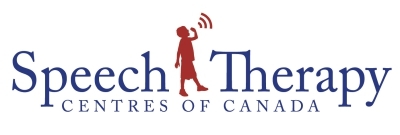Recently there was an editorial in the Toronto Star (Dec. 11th 2013) about the importance of early intervention therapy and support for families whose children have autism. As a speech- language pathologist (S-LP) I totally agree with the fact that that there is a “…dearth of early intervention therapy and support…” for children (and adults) with autism. While there are wonderful programs out there, and those involved do a good job of supporting their communities, obtaining the right services in a timely fashion is a challenging process for many families who experience long wait lists.
The Star article highlights IBI therapy (https://speechtherapycentres.com/areas/sfoautismspectrum), reiterating its importance as a therapy for children with autism. While IBI is a valuable component of a comprehensive treatment plan, as an S-LP I want to emphasise the importance and value of early speech-language pathology (speech therapy) services. I am convinced that speech-language pathology services need to be part of any discussion on early access to autism services. It’s essential for better long-term outcomes.
The American Speech and Hearing Association (http://www.asha.org/)(ASHA) position statement (1) notes that
“Speech-language pathologists play a critical role in screening, diagnosing and enhancing social communication development and quality of life in children, adolescents and adults with Autism Spectrum Disorders (ASD)…..”1
ASHA adds that the core features of ASD include:
- Difficulty with reciprocal interaction
- Impairment in verbal and non-verbal communication
- Restricted range of activities
It is important to point out that language is the major currency in social skill development (https://speechtherapycentres.com/need-therapy/childneedspeechtherapy). An S-LP, amongst other things will examine how a child USES language. For example, does he/she use greeting words such as ”hi” and “bye”; would he/she use words for requesting. As a result of their role appraising an individual’s ability to use language, an S-LP is integral to the ASD assessment and therapy process
While the Toronto Star article highlights the importance of early access to other types of services, I would like to specifically mention the importance of early detection of speech, language and social communication difficulties– all areas assessed by S-LPs. And all areas that can provide the first indicators that a child may have a social communication issue like those associated with autism. Studies have shown that early detection of particular concerns results in better long-term outcomes, which is of course the goal of any assessment and therapy program.
It’s so important, therefore, that S-LPs need to be a recognized part of the detection and therapy process. We can support therapy and participate in determining many of the key indicators of ASD, but we can also be a very valuable contributor in the early diagnosis process.
For more information on the role of Speech-Language Pathologists in Autism therapy, please visit our website. To speak to our intake coordinator, please call 905-886-5941 or fill out our contact form (https://speechtherapycentres.com/contact-us).
Reference
1American Speech and Hearing Association. (2006) Roles and Responsibilities of Speech-Language Pathologists in Diagnosis, Assessment and Treatment of Autism Spectrum Disorders Across the Life Span (Position Statement). Available from www.asha.org/policy.
Written by:
Jeannette Podolsky, Speech Language Pathologist, reg. CASPLO
photo credit: hepingting via photopin cc
